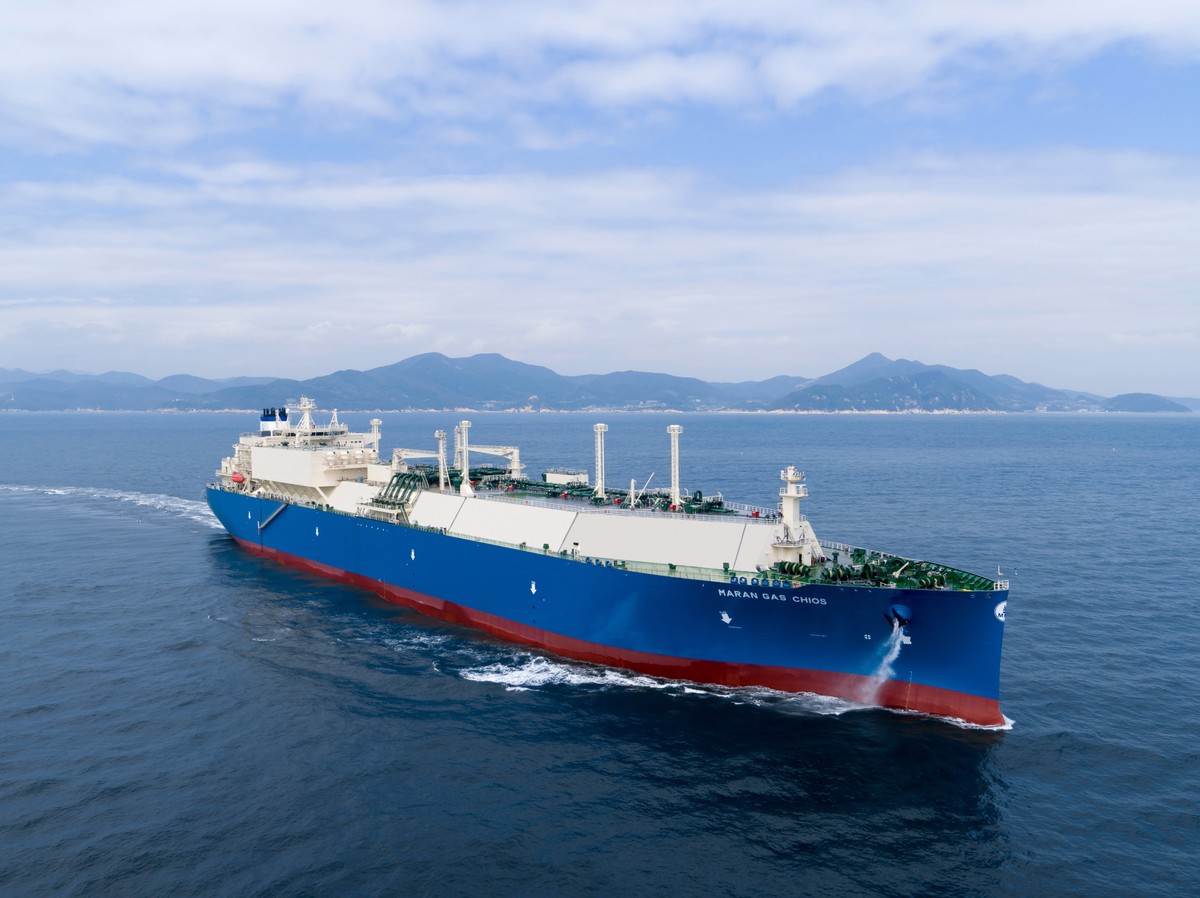Maran Gas to trial Daphne’s methane abatement system on its LNG carrier
Greek shipping company Maran Gas Maritime has partnered with Swiss climate tech firm Daphne Technology to test Daphne’s methane abatement system on one of its LNG carriers.
 PHOTO: Maran Gas’ LNG carrier Maran Gas Chios at sea. Angelicoussis Group
PHOTO: Maran Gas’ LNG carrier Maran Gas Chios at sea. Angelicoussis Group
Under the pilot project, the 173,548 cbm LNG carrier, Maran Gas Chios, will be retrofitted with Daphne’s exhaust gas cleaning system that removes methane from the exhaust gas. It has been developed for use in LNG-fuelled internal combustion engines used in maritime, oil & gas and land-based industries.
“Maran Gas sees LNG as a readily available and mature fuel which offers substantial GHG reduction compared to the standard fuels used in shipping,” Maran Gas’ technical director Andreas Spertos says.
LNG can curb carbon dioxide emissions by about a quarter compared to conventional bunker fuels. But methane slip remains a key concern as methane emissions can be 36 times more potent as a greenhouse gas (GHG) compared to carbon dioxide over a century, according to a World Bank study.
“At the same time, we are aware that the reduction of methane slip from dual-fuel marine engines to levels that are technically achievable is a key aim for the sustainability of LNG as fuel,” Spertos adds.
Methane slip is a concerning issue in the shipping industry. It occurs when unburned methane from ship engines escapes into the atmosphere. Since it is unplanned and largely unmeasured, it poses a significant threat to the environment.
The project will also see Daphne’s digital tool that measures GHG emissions for maritime and land-based combustion engines installed onboard Maran Gas Chios. The data gathered during the trial period will be evaluated by the classification society Lloyd’s Register.
Apart from Maran Gas, Daphne and Lloyd’s Register, the pilot project includes Finnish engine maker Wärtsilä as the ship’s main engine provider, global trading and shipping company Shell International Trading as a collaborator and charterer of the vessel and classification society DNV to provide “relevant class approvals for the retrofit.”
“Methane slip has been significantly reduced in modern engines thanks to continuous development of combustion technologies, but remains a challenge in LNG-powered vessels using older engine technologies,” Daphne claims.
Daphne’s methane abatement system reduces methane in exhaust gas to negligible levels, the climate tech firm claims.
The system is complimentary “to Wärtsilä technologies and developments.”
“Reducing methane emissions is a top priority for the maritime industry, and this trial of innovative technology on an operational ship marks an important milestone,” Shell’s technology manager Steve Brown concludes.
By Tuhin Roy
Please get in touch with comments or additional info to news@engine.online






